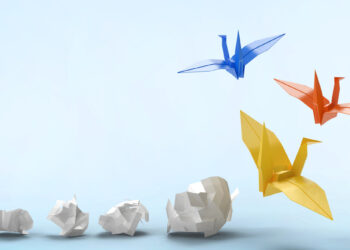
Facebook has become one of the Web’s top brands and destinations. Hundreds of millions of people use it daily. It is truly a modern phenomenon.
Its recent IPO caught the frenzy by generating a valuation of 40x very quickly. But its value sunk back nearly as quickly and, if you were to believe all the shaming going on, will never recover. One issue amplified by the skeptics is that Facebook generates 82% of its revenues from online advertising, an over-reliance they find troubling. By extension, any pessimism about Facebook’s future, therefore, is pessimism about online advertising’s future.
A recent skeptical analysis of the “Facebook Fallacy” by Michael Wolff in Technology Review lays out the challenges Facebook must overcome, and why Google has a much better position in this same market. However, one of Wolff’s basic tenets is puzzling — namely, that Facebook’s heavy reliance on Web advertising makes their course more difficult. What’s puzzling is that Google is even more reliant on Web advertising, which generates an astounding 97% of Google’s revenues.
Wolff is right to point out that Facebook’s high dependence on an advertising model has created a revenue stream that generates a measly $5 per user per year, while the New York Times is still generating about $1,000 per subscriber per year. But the New York Times’ subscriber base is much smaller than Facebook’s user base, which is about to crack the 1 billion (with a “b”) user ceiling, and could easily reach 2 billion users over the next decade. That’s more than 25% of the world’s population. Scale is a factor Wolff overlooks in order to generate his narrative.
At the same time, Facebook might have a comparatively weak application for the Web — social media sharing — which is facing competition from Twitter, LinkedIn, and many local or language-based social hubs. While Facebook has pushed this into many crevices, the fact remains that from a “killer app” position, Google still has Facebook beat with its search engine. Coupled with the more robust and diversified AdSense online advertising system, Google has created an extension ecosystem for online advertising — with AdSense widgets nearly everywhere, and core Ad Words working well — that Facebook will have trouble matching in any meaningful way. As Wolff writes:
[Facebook] lacks only the big idea. Right now, it doesn’t actually know how to embed its usefulness into world commerce (or even, really, what its usefulness is).
Facebook’s targeting capabilities aren’t a game-changer, Wolff feels, as the wider Web is now rich in data and linkages so that many media companies can legitimately offer insights into user targeting and tracking that Facebook’s closed system can sometimes edge out, but not reliably — certainly not enough to reliably command a higher price point in the market.
But more objective measures of online advertising’s value show there’s still room to grow (as much as a $20 billion advertising opportunity remains to be tapped), with attention being underspent by a significant amount still. The audience and its eyeballs are online. Facebook’s positioning and potential may have been exaggerated by the hype that an IPO creates when there is a paucity of IPOs, but neither is negligible.
The real threat to advertising in my mind remains with print advertising, which may yet reach a tipping point from which it will not recover — assuming it hasn’t already begun its slow decline into niche oblivion. If there is a big shock coming in print advertising, online advertising will probably then bounce as high as print sinks, the money shifting hard to digital. Facebook may be well-positioned with targeting and capacity for those months and years. In this world, both Facebook and Google would have thriving ad businesses.
Facebook was clearly overvalued at its IPO. That’s not unusual for a high-profile and media-hyped IPO, nor are the subsequent drubbing in the market and feelings of hurt and disillusionment. But time marches on, as does Facebook. This story isn’t over by a long shot.
One factor here is that the technology press is notorious for its mood swings — heaping praise on a company one minute, piling on derision the next. It’s a fickle body, with opinions that need to be taken with a grain of salt. At one point, Amazon was doomed, Bing was going to defeat Google, Pointcast was the next big thing, AOL was dead, and so forth. The future is hard to predict, but especially difficult when you yourself are unpredictable and tendentious.
Web advertising is still growing, has a lot of headroom, but is probably going to incrementally grow year after year. Quick hits in the stock market shouldn’t be expected, and Facebook may become a value stock.
As other ways of reaching customers shrink (print, especially) and lose their targeting edge (television, radio), there’s plenty of reason to think online advertising won’t collapse, as Wolff proposes. In fact, it may be expanding even as we speak. As that leaves us with a technology press notorious for crying Wolff.
Discussion
11 Thoughts on "The "Facebook Fallacy" and Whipsaw Attitudes Toward Web Advertising"
Wolff is rather brief on the subject but there are good reasons why Google is in a much better position than Facebook with regards to monetizing Internet advertising. Ken Doctor has posted a more complete overview of Google’s business a while ago: http://www.niemanlab.org/2012/06/the-newsonomics-of-google-ad-singularity/
Two points are important. First, Google is the universal middleman for advertising placement, and therefore unaffected by individual websites and companies perishing. As long as someone advertises something somewhere on the Internet, Google probably gets a cut. Diagram showing a ballpark estimate of Google’s AdSense and DoubleClick market presence: http://w3techs.com/technologies/market/advertising
Second, Google dominates search. Users hate and ignore most Internet advertising, but advertising in search results is an exception. Since users actively search for the term on which an ad is based, it’s narrowly targeted by definition and relatively likely to succeed. Doctor says paid search accounts for half of digital advertising — and Google holds 82% of paid search.
I agree, and have read Ken Doctor’s piece as well as others, which is why I wrote:
While Facebook has pushed this into many crevices, the fact remains that from a “killer app” position, Google still has Facebook beat with its search engine. Coupled with the more robust and diversified AdSense online advertising system, Google has created an extension ecosystem for online advertising — with AdSense widgets nearly everywhere, and core Ad Words working well — that Facebook will have trouble matching in any meaningful way.
But Wolff goes too far, I feel, to say that Facebook’s role in online advertising is going to devalue the show shebang. Clearly, there’s much more going on in online advertising than just Facebook.
True, I agree that Facebook by itself is not going to devalue all online advertising everywhere. Different places and methods are going to be valued differently.
To clarify my first post, I should have referred to your quote which does mention the crucial factors, but I wanted to put more emphasis on them (and link to Doctor’s piece) since you questioned Wolff’s distinction between Google’s and Facebook’s prospects. In my opinion, Google’s position is so unique that it’s quite reasonable to expect Google to do well for the foreseeable future, even while being down on digital advertising in general or Facebook in particular. A new influx of advertising money from print, as you speculate, may or may not benefit Facebook — but it will almost certainly benefit Google, which controls search and advertising on most other websites.
the threat to google is mobile where many people do not search via traditional search engines, but rather depend on other applications to find and discover, whether it be apps like Yelp, or from social sites like fb, pinterest, etc. one reason why goog bought zagat and frommers recently. mobile, btw, is also a threat to fb where usage is much lower than on pc’s, which drove fb to buy instagram. there is an intense race unfolding before our eyes by many co’s to dominate the nascent world of “m-commerce”.
IMHO, the biggest challenge for online advertising is that those ad buys are run by people like me–Direct Marketers, and not by the people who buy print and broadcast–the “demographic brand” advertisers.
Brand advertisers are willing to pay–essentially–for impressions. So print could sell ads using ABC certificates and broadcast can sell using Nielsen. In most cases (Anthony Sullivan and the late Billy Mays notwithstanding) response (if any is even stimulated) is untrackable, ROI not calculated, and the ads are very expensive. And since print and broadcast can’t really be tracked and ROI calculated, the demographics and “impressions” are the best you can do.
Direct Marketers, on the other hand, are essentially “religious” about response rates and ROI. We’re willing to test almost anything–we’re eager to experiment with Facebook and other online venues–but those venues are great about returning response data. And when we find the response data disappointing, we don’t go back. And we’re not willing to pay anything close to what “brand” advertisers pay for print and broadcast–because that decimates ROI. And that’s a huge, largely undiscussed problem for the whole “Everything on the net should be free to use and ad supported” ethos.
(I work at Springer, I’ve done Direct Marketing as well in a variety of other STM and professional publishing venues, and my opinions are my own.)
I agree completely that direct marketing attitudes and skills have met online metrics, and the relationship is not a healthy one for advertising. Measuring direct response to ads undervalues advertising by a wide margin, because it’s ADVERTISING. It’s meant to have an indirect influence on perceptions and preferences, not trigger a transaction. Ultimately, the Google and Facebook metrics engines play into these attitudes by allowing ROI and other calculations to be applied to advertising that is presumed to be much more transactional in nature. But there’s nothing like a beautiful print or banner ad to subtly shape perceptions and preferences. And fill seats.
Kent,
I am amused. Because I have–and have had–this same debate, particularly with Editors–for almost my entire career. 🙂
With limited resources–and as you know marketing resources in STM publishing are limited–one needs to spend (including time and effort) only on what you can quantitatively prove works.
the biggest threat to online advertising is that like many kinds of advertising, it steals everyone’s energy away from the real driver of commerce: making a great product that people will actually pay money for because it makes their lives better. relying on sheer volume, regardless of how “targeted” it is, is not a great strategy.
But how do you make people aware of the features and benefits of your great new product? How do you establish a brand known for making great new products? You have to advertise. It doesn’t steal time away from products, but gives time over to products and services. Many great products have failed because of terrible advertising strategies, and many mediocre products have thrived because of great advertising.
I remember the pithy saying on the back of a sugar packet from my childhood: “He [sic] who has a thing to sell and goes and whispers in a well is not so apt to get the dollars as he who climbs a tree and hollers.”
It is true that marketing–especially in this sector–only works when there’s a “there” there, but a great product no one knows about is a commercial failure…



